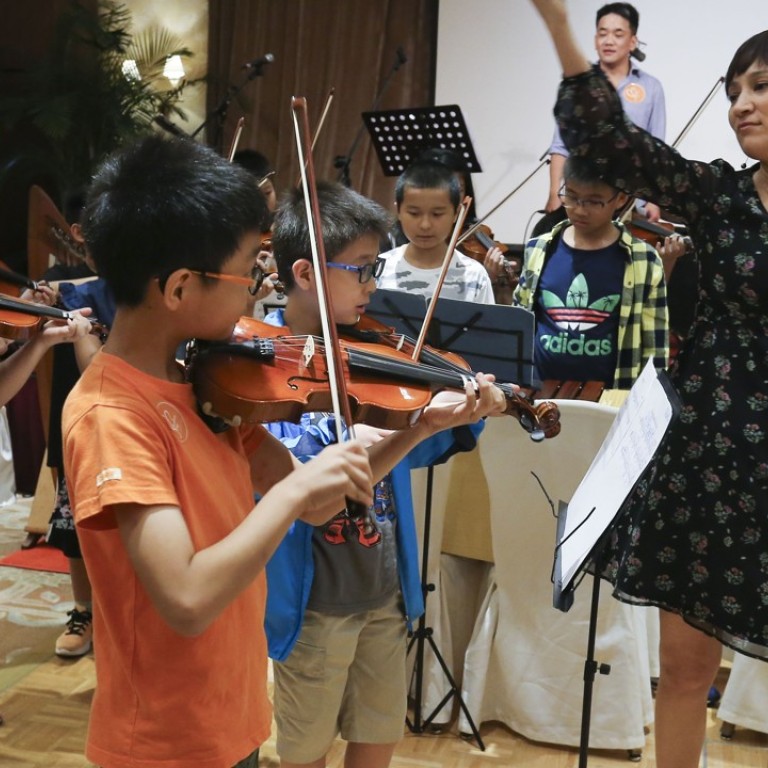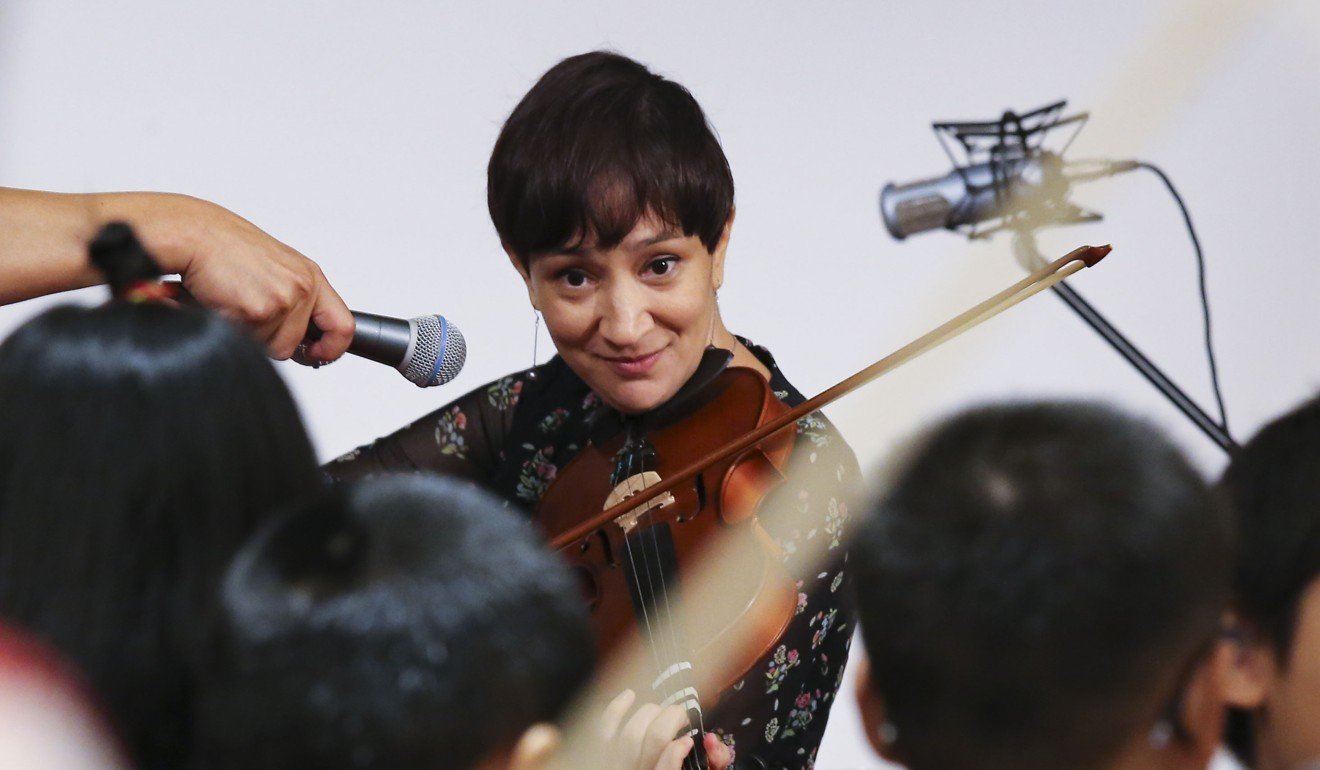
Venezuelan violinist brings the joy of music to Hong Kong’s ‘city of sadness’
Melissa Nino opens El Sistema Hong Kong to teach children music in Tin Shui Wai
When violinist Melissa Nino arrived in Hong Kong from her native Venezuela last year, she noticed something was missing.
The city had trappings similar to other cosmopolitan areas like New York and Tokyo, with great food, shopping malls and thriving financial districts.
But Asia’s world city lacked her biggest passion.
“Hong Kong is a great city, but the arts and music scene are way behind,” said Nino, who was trained at her country’s world-renowned music programme, El Sistema – or “The System” in English.
She was hired as general manager of an NGO called, Music for the Growing Mind, which partnered with local charity Chicken Soup Foundation to coach underprivileged kids.
Talented Hong Kong-based violinist has many bows to her string
Last month she decided to embark on a new chapter, changing Music for the Growing Mind to El Sistema Hong Kong – an offshoot of the school that was founded by Venezuelan educator, musician and activist José Antonio Abreu.
The programme emphasises child development through the practice of music.
“If you want to compete with a top city like New York and Tokyo, you have to have everything, not just a moneymaking mechanism, but also education and arts,” said Nino, who was a member in orchestras in the US and Europe.

Partnering with Chicken Soup Foundation, the violinist started her mission in Tin Shui Wai, dubbed the “city of sadness” after a series of suicides by young pupils who were under enormous pressure.
“We offer free music programmes and instruments for children from ages eight to 12 with little or no music background, and we build self-esteem in them through the joy of learning and playing music together,” she said.
Mandatory public performances for her 30-member ensemble was a unique feature in her teaching.
“One of the El Sistema ways is to get the kids to perform as much as possible. We don’t wait for them to be perfect, or ready, but they go out and perform in malls or on the streets, even just playing open strings, as they did at their first concert, which sounded horrible,” she said with a laugh.
“But now performance to them is joyful rather than traumatic. Remember, some of them started from never seeing a violin before, and now they are at ease performing at IFC in Central,” she said.
For some of the children, it was their first trip to Central.
Some of them started from never seeing a violin before, and now they are at ease performing at IFC
A fundamental approach in the El Sistema method is “reinforcing the good and not pointing out the bad”.
“Remember they are not professionals. When a kid is trying hard on the instrument, you commend the effort more than the outcome, and that gets others to try hard, too. That’s how self-esteem is built, and it’s contagious,” Nino said.
The joy the Tin Shui Wai children have found through music could be extended to other parts of society, such as the elderly. Nino also said this joy could reach other aspects of life, and it could make people happier and healthier by reducing stress.
Since last month, Nino has been using the method to teach a group of 20 at the Sheng Kung Hui Western District Elderly Community Centre. They will make their public debut at St Paul’s College on Bonham Road on Oct 21.
“Learning music and socialising aside, the lesson is good for their health for things like motor skills and the brain function, too,” she said. “Music is for everyone.”

